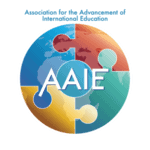What If Every Student in Your School Had Regular and Meaningful 1:1 Conversations with a Caring Adult?
MARIO for Me is a software and professional learning system that leverages wellbeing data to make face-to-face conversations with students more common and impactful.
– Students do a weekly online check-in around wellbeing, safety, and academic readiness
– Teachers get real-time data, research-backed scaffolding and professional learning to plan next steps
– Students and teachers hold short, structured meetings to build connections and set learning goals
27%
Closes the GPA achievement gap by 27% in a Learning Support setting.
5%
Our approach is in the top 5% of educational interventions, read the peer-reviewed study
24%
Decrease students of concern by 24%
MARIO for Me Software
Measure what matters and use data to build a better learning experience with MARIO for Me™. Our software successfully addresses dozens of pain points schools encounter and has been cross-referenced with the six tenets of humane technology.
Provide teachers with tools & skills to connect with students
Help schools build advisory programs around strong teacher-student relationships
Alert counselors with timely student wellbeing updates
Build schoolwide capacity to empower self-directed learners
Give students agency and a meaningful voice in their learning
Professional Learning Courses
Our professional learning courses offer an in-depth understanding of the research and pedagogy behind The MARIO Framework®, our approach to personalizing learning. Educators report a significant increase in self-efficacy after completing MARIO courses. Develop new skills, tap into resources, and connect with like-minded educators around the globe.
Psychology
Neuroscience
Design Thinking
Medicine
Rooted in Research
MARIO Education focuses on what matters most: improving the quality of school relationships through impactful student-teacher conversations.
“Positive relationships with adults are perhaps the single most important ingredient in promoting positive student development.”
(Pianta, Hamre, & Allen 2018; Search Institute 2017)
“The significance of teacher-student relationships is beyond dispute [Effect size: 0.62 to 0.72], yet maintaining these relationships is a complex task.”
(John Hattie, Visible Learning: The Sequel, 2023)
MARIO’s approach was found to be in the top 5% of all educational interventions in a peer-reviewed study of 1:1 conversations in special-needs education settings.
(Bowman, Farrar & Novak, 2022)
Join the MARIO Community in Over 25 Countries
AFRICA
- Egypt
- Kenya
- South Africa
- Zambia
- Morocco
NORTH AMERICA
- Canada
- United States of America
SOUTH AMERICA
- Chile
- Brazil
- Columbia
- Uruguay
ASIA
- Bangladesh
- China
- Hong Kong
- India
- Phillipines
- Singapore
- South Korea
- Thailand
- Vietnam
- Japan
- Malaysia
- Indonesia
EUROPE
- Azerbaijan
- Germany
- Netherlands
- Spain
- United Kingdom
- Austria
- France
MIDDLE EAST
- Bahrain
- Kingdom of Saudi Arabia
- United Arab Emirates
- Qatar
- Oman
- Cyprus
Meaningful Learning
in Your Inbox Every Month
Our monthly newsletter is packed with valuable insights and inspiration.
Sign up now for a free lifetime subscription!









What Educators and Learners Say About Us
Educators and learners all over the world have connected and improved learning outcomes through MARIO. Here’s what they had to say about their MARIO experience.
99%
of students report positive benefits from our 1:1 conversations
MARIO was a BIG wake up for me. I have been in resource rooms (withdrawal rooms) for 10 years and I focused on 1. Getting to know how a student learns, 2. Helping students grow in their approaches to learning, self management etc. 3. Helping students set goals. BUT…I never organized my learning conversations in the way MARIO has set it up. This stretches what I do every day because it organizes for me new and different learning conversations.
I now trust that students can achieve a goal and be in charge of their learning, and know that taking time to do so was a good use of time.
The way that the framework empowers learners to engage and take ownership in their learning journey is the best thing about The MARIO Framework.
I found it very purposeful, intentional, and easy to apply to my own context.
I can attest to the effectiveness of what was implemented in their one-on-one sessions and conferences. My children received personalized, bespoke attention curated to their specific needs. They are applying the tools they learned in their college setting. My children are self-reliant and independently managing their lives and their education.
The best thing about The MARIO Framework is the way it taught me evidence-based approaches to specialist education but in an easy-to-understand format. The wording that was used was user-friendly and easy to understand so it did not overwhelm. One of my main concerns was helping my learner to develop socially. This course has given me access to many evidence based strategies to help me support my learner with these goals.
The one-to-one sessions allow for the opening of another perspective into what you are really going through in life, and it really helps.
MARIO was a BIG wake up for me. I have been in resource rooms (withdrawal rooms) for 10 years and I focused on 1. Getting to know how a student learns, 2. Helping students grow in their approaches to learning, self management etc. 3. Helping students set goals. BUT…I never organized my learning conversations in the way MARIO has set it up. This stretches what I do every day because it organizes for me new and different learning conversations.
I now trust that students can achieve a goal and be in charge of their learning, and know that taking time to do so was a good use of time.
The way that the framework empowers learners to engage and take ownership in their learning journey is the best thing about The MARIO Framework.
I found it very purposeful, intentional, and easy to apply to my own context.
I can attest to the effectiveness of what was implemented in their one-on-one sessions and conferences. My children received personalized, bespoke attention curated to their specific needs. They are applying the tools they learned in their college setting. My children are self-reliant and independently managing their lives and their education.
The best thing about The MARIO Framework is the way it taught me evidence-based approaches to specialist education but in an easy-to-understand format. The wording that was used was user-friendly and easy to understand so it did not overwhelm. One of my main concerns was helping my learner to develop socially. This course has given me access to many evidence based strategies to help me support my learner with these goals.
The one-to-one sessions allow for the opening of another perspective into what you are really going through in life, and it really helps.
MARIO was a BIG wake up for me. I have been in resource rooms (withdrawal rooms) for 10 years and I focused on 1. Getting to know how a student learns, 2. Helping students grow in their approaches to learning, self management etc. 3. Helping students set goals. BUT…I never organized my learning conversations in the way MARIO has set it up. This stretches what I do every day because it organizes for me new and different learning conversations.
I now trust that students can achieve a goal and be in charge of their learning, and know that taking time to do so was a good use of time.
The way that the framework empowers learners to engage and take ownership in their learning journey is the best thing about The MARIO Framework.